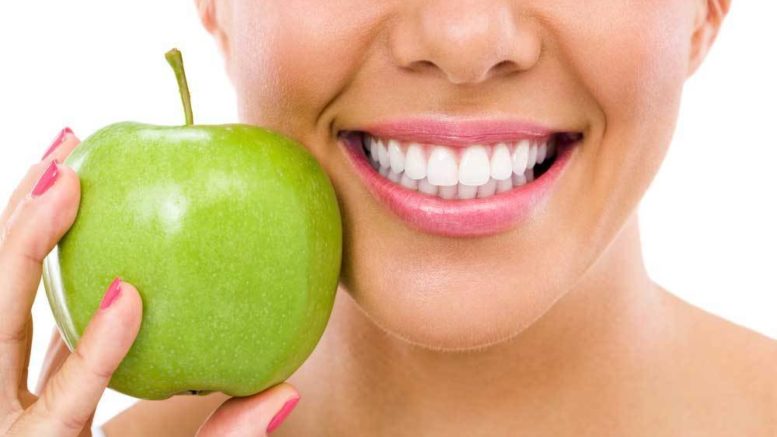Sensitive teeth, also known as Dentin Hypersensitivity, are painful conditions that occur when the tooth’s inner layer (otherwise called the dentin) is exposed. Cases of teeth sensitivity are quite common, with a study showing a prevalence of up to 14.3% of all dental patients.
It is responsible for the sharp pain experienced when you eat meals. There are various causes of teeth sensitivity. Here, you will find tips that can help you cope with the discomfort.
Causes
Eating Acidic Food
Acidic food, like lemon, wears down teeth enamel, leaving the nerve ending of teeth exposed. When this happens, any contact with these nerve ending results in sharp pain.
Tooth Grinding
Regular teeth clenching or grinding also wears down the enamel exposing sensitive nerve endings.
Brushing Too Strong or Using a Brush with Hard Bristles
Regular brushing is good, but with excess force, the result is sensitive teeth. Using toothbrushes with stiff bristles, like those classified as smokers’ toothbrushes, might lead to teeth sensitivity.
Using Toothpaste That Whiten Teeth
Toothpaste that advertises whitening power contains chemicals that peel layers of the enamel. Though different brands have different concentrations of the whitening formula, in the end, their effects are the same.
Excessive Use of Mouthwash
Similar to whitening toothpaste, mouthwash contains chemicals that lead to sensitivity.
Receding Gums
Receding gums exposes the hidden part of the teeth that are more sensitive than exposed ones. When this happens, any contact with the newly exposed part causes teeth sensitivity.
Gum Disease
Gum diseases like Gingivitis cause teeth sensitivity.
Excess Plaque
When you don’t floss or brush regularly, there is a buildup of plaque. Excess plaque on the tooth erodes the enamel leading to teeth sensitivity.
Previous Dental Procedure
After dental procedures like a root canal or crowning, it is common to experience teeth sensitivity. After some time, this sensitivity goes away.
Cracked Tooth
When you have a cracked tooth, there is the possibility of a buildup of plaque or bacteria in the tooth leading to teeth sensitivity.
Decay around Tooth Fillings
Tooth fillings weaken as they become older. Once this happens, they crack. Bacteria can fill these newly formed cracks and cause wearing down of the enamel. Wearing down leads to teeth sensitivity.
Other Medical Conditions or Disorders
Medical conditions like Gastroesophageal reflux (GERD) or eating disorders like bulimia can cause teeth sensitivity. These medical conditions cause constant vomiting; vomit is usually acidic.
Therefore, the regular acidic vomit washes off the enamel leading to teeth sensitivity.
Tooth Decay
Teeth sensitivity can be a symptom of tooth decay; when a tooth decays, it leaves a hole that exposes nerve endings. Exposed nerve endings equal sensitive teeth.
Tips to Cope with Sensitive Teeth
Maintain Regular Oral Hygiene
Brushing your teeth twice a day, flossing regularly to remove plaque, and using gentle mouthwash help ease teeth sensitivity. The best tip to avoid teeth sensitivity issues is to maintain regular oral hygiene.
Use Sensitive Toothpaste
Many toothpaste brands make toothpaste for sensitive teeth. If you are in doubt, ask your dentist for a recommendation.
Use High Fluoride Mouthwash
Mouthwashes are containing a high concentration of fluorine help with teeth sensitivity. Fluorine particles fill or block tiny holes in the teeth, blocking access for bacteria.
Use fluorine Varnish or Paint.
As earlier stated, fluorine particles plug tiny holes in the teeth. Get a dentist to apply fluorine paint or varnish to your teeth, covering up small holes. Fluorine paint or varnish eases teeth sensitivity.
Use Homemade Remedies
Various homemade remedies like gargling salt and water mouthwash, using clove and garlic help you cope with tooth sensitivity. Swishing your mouth with coconut oil for 20 seconds also protects your teeth.
Get Use Toothbrushes with Softer Bristles
Brushing with toothbrushes that have softer bristles protects your teeth. Softer bristles do not wear down your teeth’ enamel.
Use a Mouth Guard
Mouth grinding is a common disorder than you think; there is no shame if you grind your teeth. Get a mouth guard to protect your teeth when you sleep.
Avoid Teeth Whitening
Whitening procedures often involve the use of chemical that destroys your teeth’s enamel. Avoid them if you can.
Avoid Acidic Food and Drink
Acidic food and drink damage your teeth; avoid them at all costs. Lemon, kiwi, soda, and many more are examples of acidic food and beverages.
Regular Dental Visits
Visit a dentist regularly, especially if you have diseased or receding gums. Regular checks and old fillings or chipped and cracked teeth help reduce the incidence of a sensitive tooth. Need a recommendation? You can make your teeth feel good with this general dentist in roseville.
Get a Gum Graft
A gum graft is a type of dental surgery that corrects receding gums. It is fast, simple, and covers teeth exposed by receding gums. After the surgery, there is a reduction in the pain associated with sensitive teeth.
Drink through a Straw
To avoid pain from drinking icy drinks, use a straw. Straw ensures that the cold bypasses the teeth and grows straight to the throat. Using straws avoids pains triggered by the cold beverage.
Conclusion
Understand that teeth sensitivity has no known cure. However, the pain associated with teeth sensitivity can be reduced through proper management. Understanding the causes and applying the above tips will make life with teeth sensitivity bearable. Visit us at St. Lucia’s Best Dental Practise for the best dental care.
Teeth sensitivity should not make your life unbearable with its pain, pangs, and general discomfort. Seek professional help today and start getting results!
